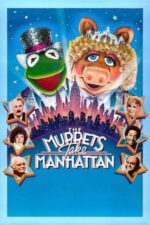More Than Just Bacon: Exploring the Complex Symbolism of Pigs on Film
Okay, so "pig" as a keyword might seem… unusual at first glance. But trust me, it opens up a surprisingly rich and fascinating vein in cinema! We often think of pigs through a very specific lens – food, farm animals, maybe even a derogatory term for someone unpleasant. But film has consistently used the pig to represent so much more: innocence, vulnerability, connection, and yes, sometimes, profound darkness.
Think about Peppa Meets the Baby Cinema Experience first. It's pure joy, right? And at its heart is Daddy Pig – a wonderfully relatable character who embodies warmth and a certain endearing clumsiness. Pigs in that context represent family, simple pleasures, and uncomplicated love. They’re safe, familiar, comforting. That feeling of cozy domesticity is something we crave, especially now.
But then you shift gears completely to Daddy's Deadly Darling. Suddenly, the pig isn’t a symbol of innocence; it becomes an instrument of horror, complicit in unspeakable acts. It’s a jarring contrast and highlights how easily our perceptions can be manipulated – just like the diner owners in the film are manipulating their own morality. This kind of extreme imagery forces us to confront uncomfortable truths about human nature and the potential for depravity that lurks beneath seemingly ordinary surfaces.
What's fascinating is how these extremes exist on a spectrum, often explored with surprising tenderness. Gordy exemplifies this beautifully. Gordy’s ability to communicate with humans isn’t just a plot device; it allows us to see the world through an animal’s eyes and question our treatment of them. It's a powerful message about empathy and challenging systems that prioritize profit over compassion – something we grapple with constantly in discussions around food production today.
And then there's Wedding Trough, which I find particularly poignant. The film isn't about shock value; it’s about loneliness, the yearning for connection, and the heartbreaking inability to bridge the gap between human and animal affection. It reminds me a little of Charlie Chaplin’s A Dog’s Life – that sense of shared isolation and longing.
Even something like The Mechanical Butcher, while visually striking, isn't just about shock; it's about questioning our relationship with food production and the often-invisible processes behind what we consume. It makes you think: how much do we really know about where our meals come from?
Ultimately, the recurring presence of pigs in film reveals a deep cultural fascination – and sometimes anxiety – surrounding our place within the natural world. Whether they’re bringing laughter to a family or representing something far more sinister, these cinematic swine consistently challenge us to examine ourselves and the world around us. So next time you see a pig on screen, take a moment to consider what it really represents. You might be surprised by what you discover.







































